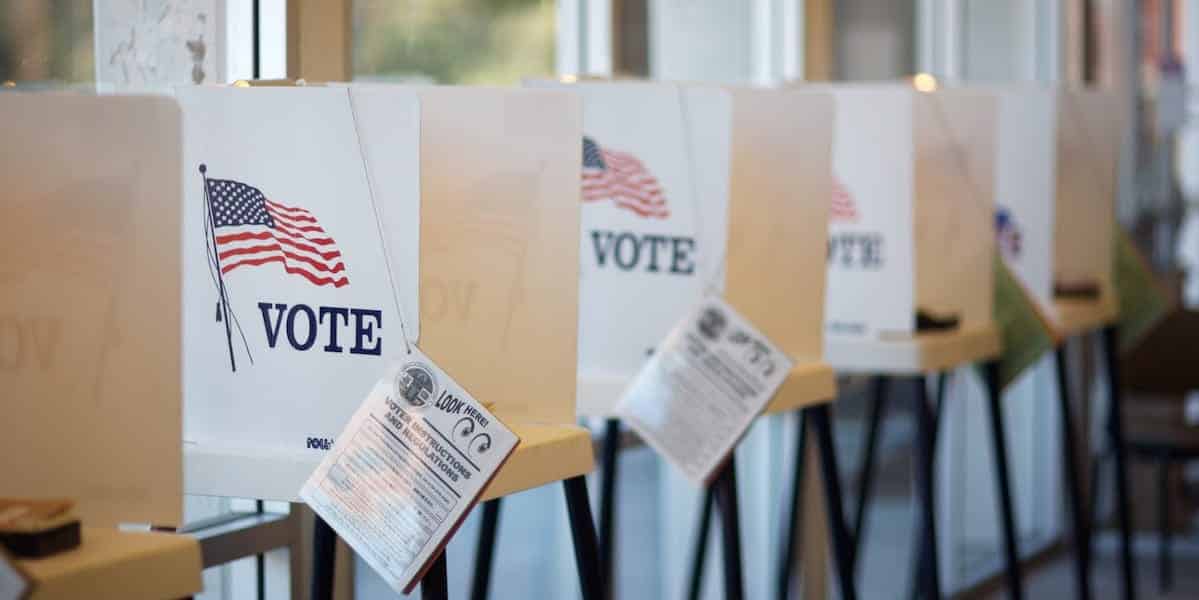The generation after millennials has made their voices heard.
Setting politics aside, the massive March for Our Lives marches held in early 2018, organized mostly by teenagers through social media, quickly gave Generation Z national exposure. The nation is watching, and in particular we’ll be watching the polls come November to see what impact the movement will have on midterm elections.
We recently took a look at how the rise of Generation Z might impact voting trends in Denver South, and one of the biggest takeaways was somewhat of a surprise: Generation Z identifies largely as independent, and they are much more likely to vote based on issues over party.
Of course, it’s still very early for Gen Z. We don’t even know yet how the generation will actually be defined, we just know they’re after millennials and the oldest among them are just beginning to enter the workforce, as well as just starting to be eligible to vote.
But we do have some data that points to which issues they’ll be most likely to cast their votes for. From there, it might be possible to extrapolate the candidates and measures where Generation Z will have the biggest impact at the polls this fall.
Gun control
The March for Our Lives movement has made it very clear that gun control is a major issue for Generation Z. But whether this movement will carry over to the polls is actually a more difficult question to answer than one might think.
Polling over the last few years has found that young people are just barely more likely to support stricter gun laws than the national average. Just 1 percent more among young people aged 18-29 say they believe gun laws should be stricter compared to older generations.
But that polling was all completed before the Parkland, Fla., shooting that spurred national walkouts and brought over 800,000 marchers to Washington D.C.
The truth is that it’s simply too early to tell whether the student activism coming out of Parkland is actually a political awakening for Generation Z.
Since the marches, organizers of the events have started mobilizing voter registration campaigns, which may end up having an impact on the midterm elections, particularly on local and regional ballots.
Whether Gen Z will give an actual bump to gun control measures and candidates that support tighter gun laws is still a mystery. But Generation Z has made gun control part of the national conversation, and that will surely be the case as elections ramp up in the fall.
The environment
76 percent of millennials say they’re concerned about global warming. And that’s just the tip of the (melting) iceberg for environmental issues.
They’re also interested in environmental issues like alternative energy sources, pollution and water access.
Candidates and measures relating to the environment are more likely to draw votes from Generation Z, regardless of where they might live. Globally, they see climate change as the biggest challenge facing the world in the next decade, and those concerns will be reflected come election time.
Diversity and social equality
Generation Z is the most diverse generation in American history, estimated to be 55 percent Caucasian, 24 percent Hispanic, 14 percent African American, 4 percent Asian and 4 percent mixed race or other.
Additionally, Generation Z expresses positive feelings about ethnic diversity and is more likely than older generations to have people of different races, religions and ethnic groups in their social groups.
If that’s not enough to convince you that diversity issues are paramount for Gen Z, 75 percent say they support same-sex marriage, and 56 percent say they no someone personally who who goes by gender neutral pronouns.
The issues and candidates Gen Z votes for will reflect the growing diversity of younger generations. Whether it’s immigration reform, LGBT* rights or simply finding candidates that don’t fit the stereotypical white, male politician, Gen Z will be voting for issues and candidates that look and sound like them.
Fiscal conservatism
Most of the issues Generation Z align themselves with are traditionally associated more with the Democratic Party than the GOP. But there’s a wild card when it comes to fiscal responsibility.
According to research, Gen Z is averse to debt, intent on saving and generally much more conservative with money than previous generations. When you consider that the voting cohort of Gen Z were young children when the Great Recession hit, this makes perfect sense.
They watched as their parents’ investments went up in smoke, and made a conscious choice to do things differently.
The economy is just behind climate change in Generation Z’s list of concerns, which means candidates will have to pitch their stances with solid numbers behind them. Promising to pull funding out of thin air isn’t going to work for this group.
Breaking away
While some issues seem to clearly identify the post-millennial generation, it’s important to remember that they are still finding their own way politically. Many of them still follow their parents’ beliefs, with nearly half of them citing their parents as their main source of news.
Suggested Reading:
Candidates looking to appeal to Generation Z will need to keep these issues in mind, but with the caveat that they are still figuring things out for themselves. The data we’ve found so far was almost entirely collected before the March for Our Lives movement, and much of it from when most Gen Zers were still living at home and too young to vote.
It’s clear they’ve found their voice, but this fall may be the pivotal moment when we see if it translates at the ballot box.


